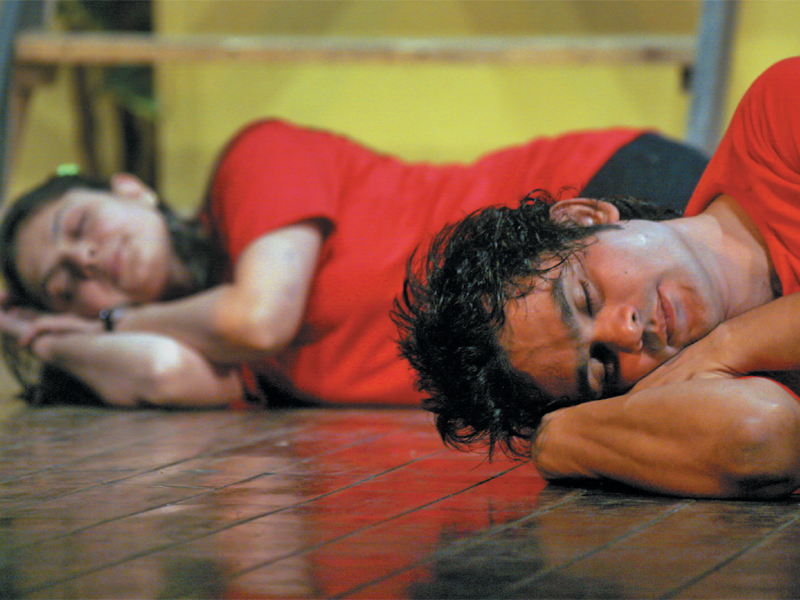
The joy of drama and theatre was evident in the eyes of Sheema Kermani which gleamed with joy the minute she stepped on stage to act out ‘Guddu ki Sochaen’, a play written and directed by members of Tehrik-e- Niswan, at Arts Council on Wednesday.
Kermani hunched forward and moved her hands extensively as she explained the plot of the play based on the many thoughts that trouble an average 10-year-old while he makes his way through life. On a cold February night, a little boy, Guddu, lay awake in bed thinking about the day’s happenings and his life. In the morning, his mother had given him some chocolate bars in a new thermos to take to a picnic organised by his school.
A naughty boy in his class, Bablu, challenged him to slide from a steep hill and the thermos broke during the process. Guddu doesn’t know how to tell his mother that he broke the new family thermos. He is even contemplating the possibility of running away from home so that he doesn’t have to face his family.
Two other actors, Aisha Maqsood and Mohsin Khan, joined Kermani to act out what goes on in Guddu’s head as he tries to decide on how he should break the news to his mother. The cast members would rapidly switch roles - from the peacocks Guddu envisions in the imaginary garden he runs away to, to his teacher scolding him for fighting with Bablu after breaking the thermos - they brought to life every thought and feeling the young boy goes through.
The play ended on a philosophical note, with Guddu finally falling asleep after realising that he must tell his parents the truth and face their anger.

Around 500 children from eight low-income schools and some of their parents turned up to attend the play. Many of them had never been to any theatrical performance before. “We organised the play to celebrate World Theatre Day,” Kermani told The Express Tribune, adding that Tehrik-e-Niswan had put up the play particularly for underprivileged children because they wanted to bring theatre to people who couldn’t afford it.
“Plays normally cost anywhere between Rs1,000 and Rs2,000. These children can never afford them but they wish to see them as much as any other individual.”
Kermani recalled her past experience of performing plays for disadvantaged children and how they encouraged her to keep going. “We did another play for children from low-income groups last year,” she said. “When I went back to those schools, the children told me that the play was the best thing that happened to them that year.”
Published in The Express Tribune, March 29th, 2013.

















COMMENTS
Comments are moderated and generally will be posted if they are on-topic and not abusive.
For more information, please see our Comments FAQ